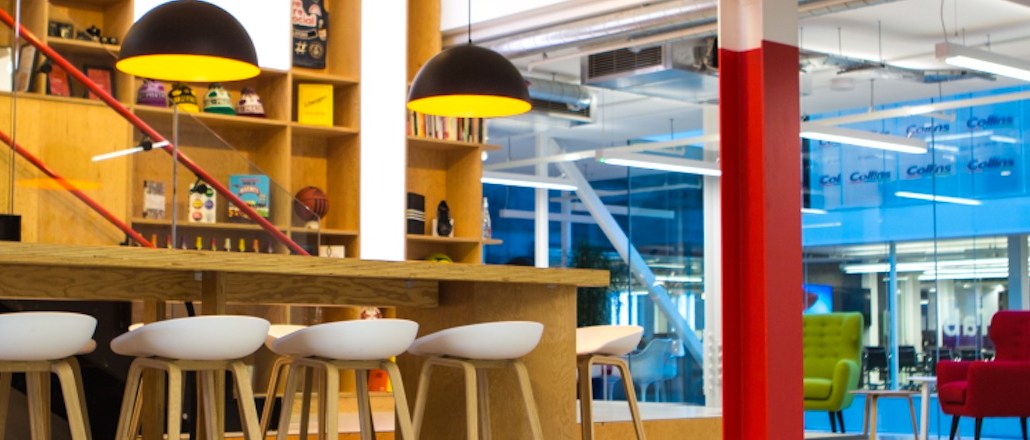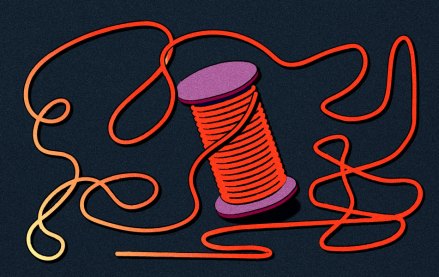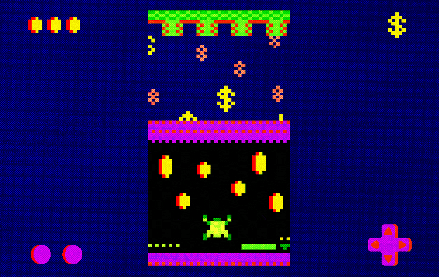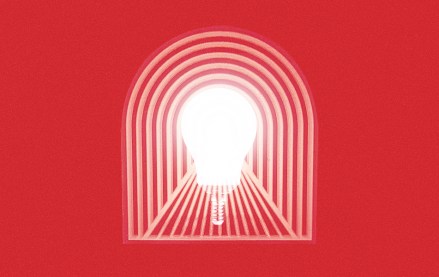Silence isn’t golden: The case for office music at agencies

Agencies don’t just show what they represent through their awesome office spaces but through what they listen too as well.
When digital agency Poke left its East London office 18 months ago to join other Publicis Groupe agencies on Baker Street, much of its defining culture was tied up in a building that couldn’t move with it, with the exception of its radio system. In its new digs, Poke has set up the “halo,” a cylindrical display for the its proof-of-concept radio player in the middle of the office space. It’s more of a totem pole to company culture rather than something on which to play background elevator music.
“Music is a defining part of culture,” Nicolas Roope, co-founder of Poke told Digiday. “As business spaces change, music creeps into these environments.”
Like many offices, agencies have become outwardly quieter over the years with the rise of headphones culture. The headphones, once thought of as standoffish, are now a regular accessory in open-office plan agencies, at once a way to concentrate and a way to tune out coworkers who are ostensibly there for collaboration.
Proponents of office music point to many benefits to music in the workplace. For agencies like Huge and DigitasLBi, a shared playlist lets people contribute to the positive atmosphere, particularly useful for a shy intern looking for kudos, and gets people into the weekend mood. In open-plan offices, music breaks boundaries, people bond over shared interests, making it easier to collaborate and form relationships, even if it’s arguing the merits of Taylor Swift.
We Are Social has six zones where people can plug in their own music. According to office manager Jenna Pannaman, when the office can be quiet background music gets people talking without inhibition, saying “people know they aren’t being listened to.”
There’s been research on how listening to music boosts productivity, particularly on how different types of music fit different tasks. Agency Iris sees this in action. “There’s sometimes soothing classical in planning, pumping beats down in studio and design, creative can be anything from power ballads to techno,” said Julia Nightingale, global PR director at the agency.
Of course, musical tastes run the gamut. That makes the role of office DJ critical.
For years, the developers at Poke have worked on how to best democratize the radio experience. In its current state, Poke Radio is a web-based app interface, people add songs to it by selecting and dragging over songs from Spotify. Songs can be up- or down-voted. Too many down-votes and they get scratched off completely, sending a screeching noise running through the office.

“There’s a bit of theater around this,” said Roope, “so there’s clear public discouragement for a certain track or genre.” The result is regular new music being added. “Radio stations rely on people enjoying repetition, so you hear the same song over again,” he added. “In our experience, we don’t want repetition, we want to discover new things.” Poke has found this helps fuel positive feeling and creativity.
For Poke, it has deeper data sets, like who the best DJ is, who the most generous liker is, what type of songs are played on which days. When people don’t tee up a song, nothing plays. With that in mind, music is playing 94 percent of the time during working hours.
In the last six months, the system has rolled out to the other agencies in the Publicis Groupe.
“Different experiences emerge from it,” said Roope. “It can reinforce structure and can highlight things that could need addressing.” The group, however, was unable to share specific data on how the different agencies use the player.
“People hunt down tracks to reflect the mood,” said Roope, but the contributions to a healthier culture outweigh any wasted time through distractions. “We’ve come a long way from information-driven intranets, from thinking about business and the society of companies as informational rather than emotional. It’s about creating software that allows discourse, whether it’s useful or not, it allows a collaborational spirit of exchange. When you enter the meeting room, you’re not starting from scratch. Music is that great connector. Everyone participates in the social cohesion.”
Of course, for those who extol the virtues of music in the workplace, there are others who find it another distraction on already fractured attention spans. Agreeing on what is played can cause tensions, and there are some who just don’t like music. Roope notes this system won’t work for every agency: “It will reinforce your edge cases, if you are an edge case.”
More in Marketing

Meta’s Threads expected to have ads this year
The move would make Threads Meta’s latest bit of ad real estate venue just over a year after its launch.

Mobile esports reaches new heights in 2024 with a boost from Saudi Arabian investment
Mobile esports activity has been picking up gradually since 2021, but 2024 could be one of the most lucrative years yet for the esports teams and players participating in popular mobile games such as “PUBG Mobile” and “Mobile Legends: Bang Bang” (MLBB).

Q1 ad rundown: there’s cautious optimism amid impending changes
The outlook for the rest of the year is a tale of two realities.





